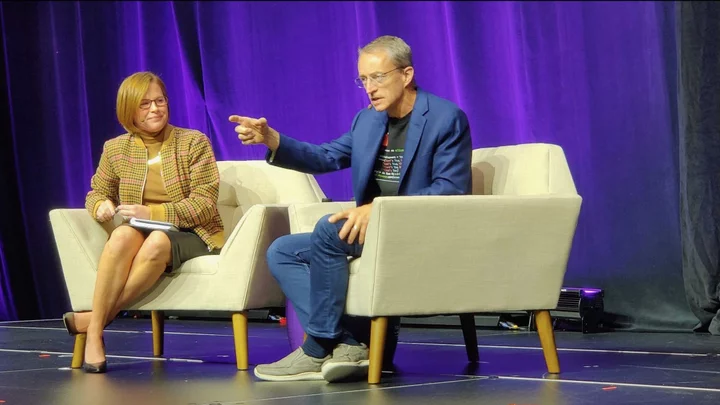Intel is preparing its own chip-stacking technology to rival AMD’s "3D V-cache" tech, according to CEO Pat Gelsinger.
But don’t expect Intel to take the same chip-stacking approach as AMD, which has been using the technology to essentially double the L3 cache on certain gaming-focused Ryzen processors. The extra memory can improve gaming frame rates on a PC, although sometimes at the cost of generating more heat, as our tests have found.
When asked at today's Intel Innovation event in San Jose if Intel would ever adopt a 3D V-cache system to stack additional memory on top of its chip dies, Gelsinger said: “When you reference V-cache here, you’re talking about a very specific technology that TSMC [AMD’s chip manufacturer] does with some of its customers as well. Obviously, we’re doing that differently, right?”
AMD's 3D V-cache approach (Credit: AMD)Intel has no plans to use a 3D V-cache-like technology on the company’s Meteor Lake processors, which start rolling out in December. “But in our roadmap, you’re going to see this idea of the 3D silicon, where we’ll have cache on one die, right? And then we’ll have CPU compute on a stacked die, on top of it,” Gelsinger said.
That sounds different than AMD, which has been using the chip-stacking tech to place added memory on top of its CPU dies. According to Gelsinger, Intel wants to do the opposite and stack the CPU on top of the memory.
Although Intel’s CEO was light on details, he said the company plans on connecting the chip dies vertically using its EMIB and Foveros processes, allowing the silicon to communicate together in a single package. “So we feel very good that we have advanced capabilities for next-generation memory architectures,” he added.
According to Gelsinger, Intel plans on making the chip-stacking approach available for the company’s own CPUs and for clients through Intel’s growing foundry business, which is competing with TSMC. But he didn't say when it will launch, so it could be years before it becomes a reality.

